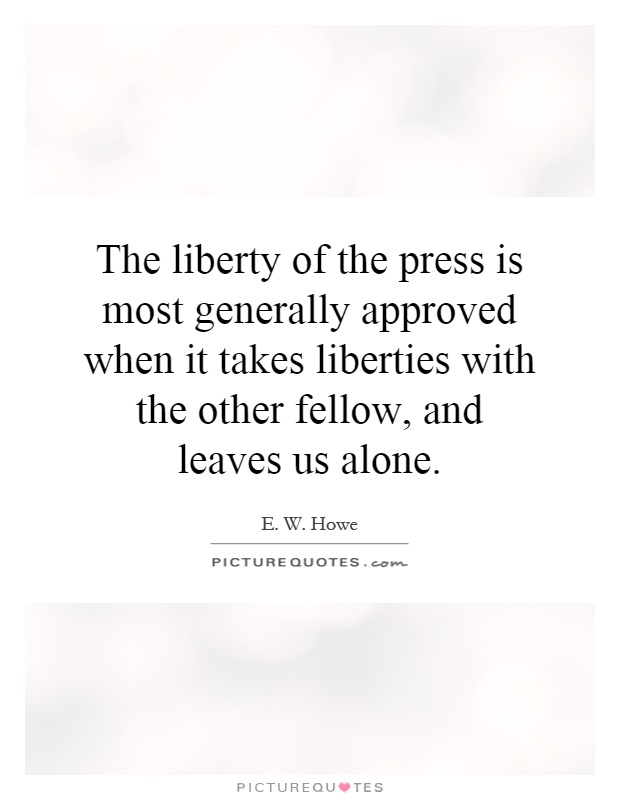The liberty of the press is most generally approved when it takes liberties with the other fellow, and leaves us alone
The liberty of the press is most generally approved when it takes liberties with the other fellow, and leaves us alone
E.W. Howe, a prominent American author and editor in the late 19th and early 20th centuries, was a staunch advocate for freedom of the press. He believed that the press should have the liberty to criticize and challenge those in power, without fear of reprisal or censorship. Howe understood that a free press was essential for a functioning democracy, as it served as a check on government corruption and abuse of power.

